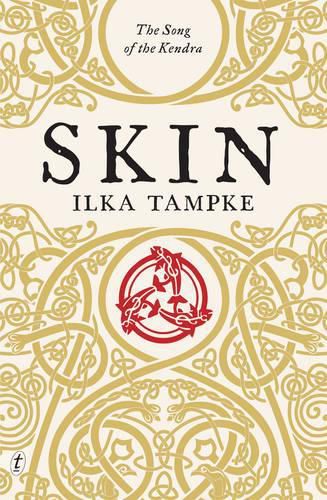Skin by Ilka Tampke
Ailia is moments old when she is left on Cookmother’s doorstep in Caer Cad, on the eve of the Beltane festival. With no knowledge of her family, she is never called to skin, and so she is only half-born; a body without a soul. In the Tribequeen’s kitchen, Ailia is luckier than most unskinned, and instead of being cast out to the fringes of society, she is raised with Cookmother’s love and guidance. But without skin, Ailia will remain isolated from her countrymen until her unceremonial death.
Tampke ignites Ailia’s prophetic narration with the rhythm of an internal monologue, dominated by her obsessive mission to find her skin, her totem, and to know her true identity. At fourteen, Ailia is on the cusp of womanhood, and Skin reveals itself as a tale of many threads: a coming of age novel; a love story; a quest narrative. The suspense is pulled taught between these complementary forces, hounded by the impending Roman invasion.
Set in Britain in the first century AD, Skin occupies a unique space in historical fiction. Steeped in Druid lore with a tangible spirit realm, it reads like fantasy but is based, at times unbelievably, on fact. A link to our ancient Iron-Age past, and predating the Arthurian Legend by some 500 years, Skin offers an alternative to the Christian tradition that came to dominate Western culture, and much historical fiction along with it.
Ilka Tampke imbues her narrative with fantastical tropes – a shape shifter; a mystical river; an otherworldly old forest; an ethereal plane – offering the reader a glimpse into a distant alternate reality; a possible history. Her vision is clear and brought to life vividly through the strength of her singular heroine. We have not heard the last from this resonant new Australian voice.
Sophie Shanahan is a freelance reviewer.


